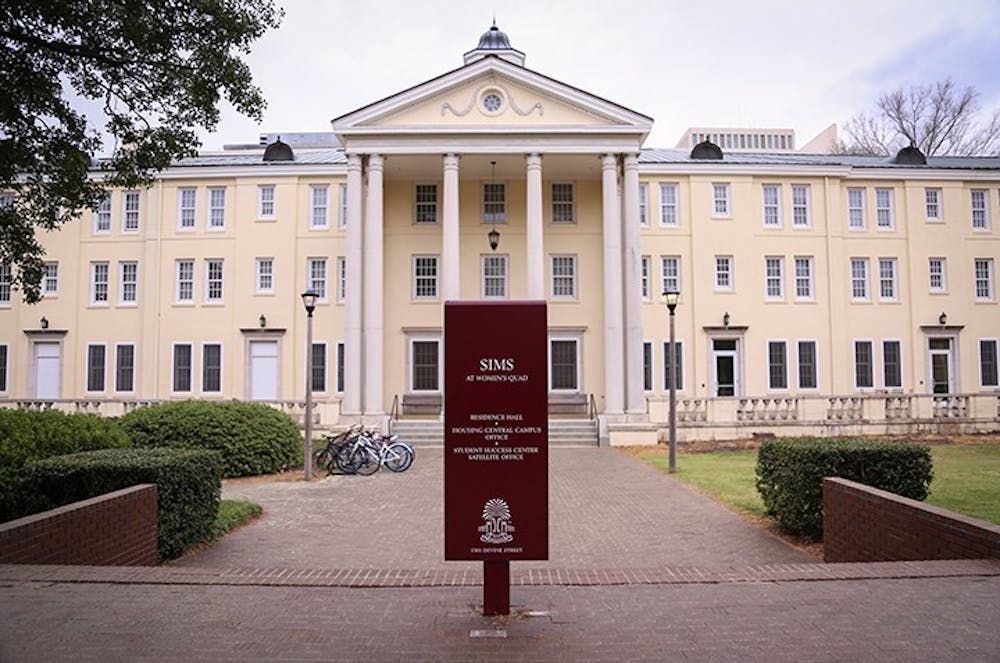The university held a public forum Tuesday to discuss university history and changing names of buildings on campus. Those in attendance called for the changing of multiple building names affiliated with historically racist figures, and one speaker offered a new name to replace Sims.
The meeting, organized by the Presidential Commission on University History, consisted of students, faculty, staff and community members having an open discussion about the history and the legacy left on the university's campus.
Former university president and member of the commission Harris Pastides described it as a "listening session," which allowed those in attendance to share their ideas with the commission.
Jazmyne McCrae, a first-year graduate student, is involved in an initiative called Repeal the Heritage Act. The Heritage Act requires a two-thirds vote in the South Carolina House and Senate to make any changes to a historically relevant building, monument or location.
McCrae said she wanted to see the names of buildings on campus changed and proposed to replace Sims with the name of Henrie Monteith Treadwell, one of the first Black students on campus at USC who stayed in Sims at Women's Quad.
"To me, 'Forever to Thee' is something said back. These buildings, these bricks, this whole campus, it speaks to its students that it is a place of permanence and power and protection, that this university is committed to me, just as I am committed to it," McCrae said.
Many of the buildings on campus were mentioned, including Wade Hampton, Sims and Strom Thurmond Wellness and Fitness Center.
"Our university has, in this state, an incredible history of people that represent Carolina's community far better than these racist men and ideas of the past. USC has a unique legacy of integration and progress that can finally have a chance to be honored with this moment of reflection," McCrae said.
Rebecca Dattilio is a staff member who also sees the advantages, in regard to representation, of changing on-campus building names.
"I think it's been made aware, especially to people in higher education, that students do not see themselves represented in the stories we tell about what success is. It is going to be that much harder for them to see themselves as someone who can be successful," Dattilio said.
Dattilio said the fight against racism is an ongoing process and will take time and work, but that the results are worth it.
"If we cannot instill that pride in those students, we cannot instill pride in anyone in our community to be a part of the University of South Carolina until that is available for everybody," Dattilio said.

